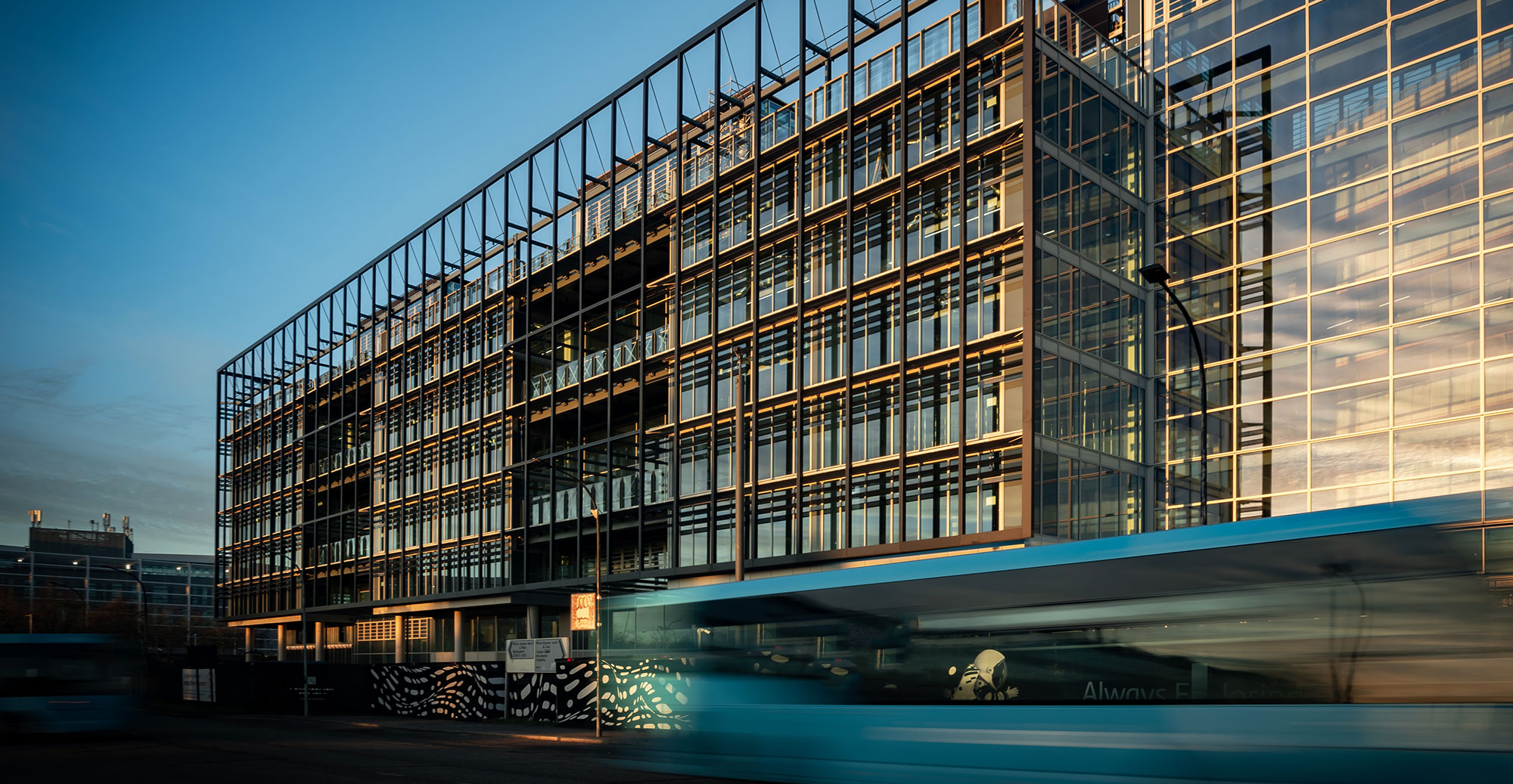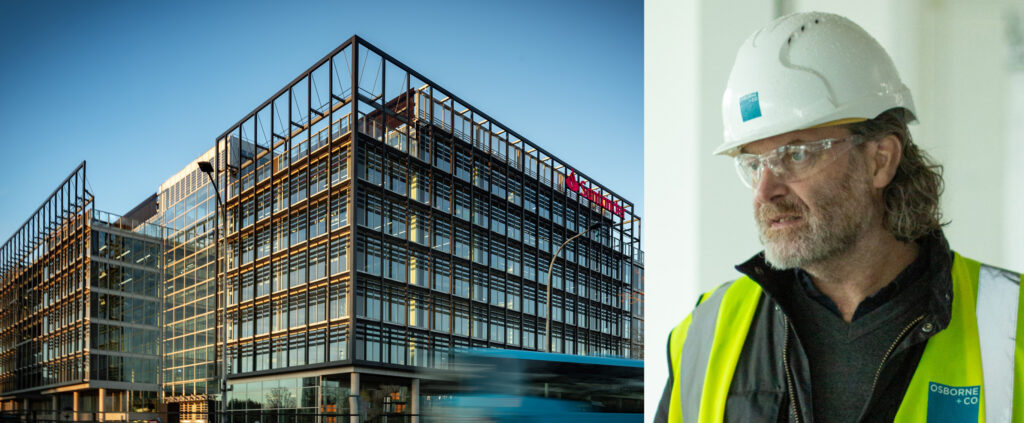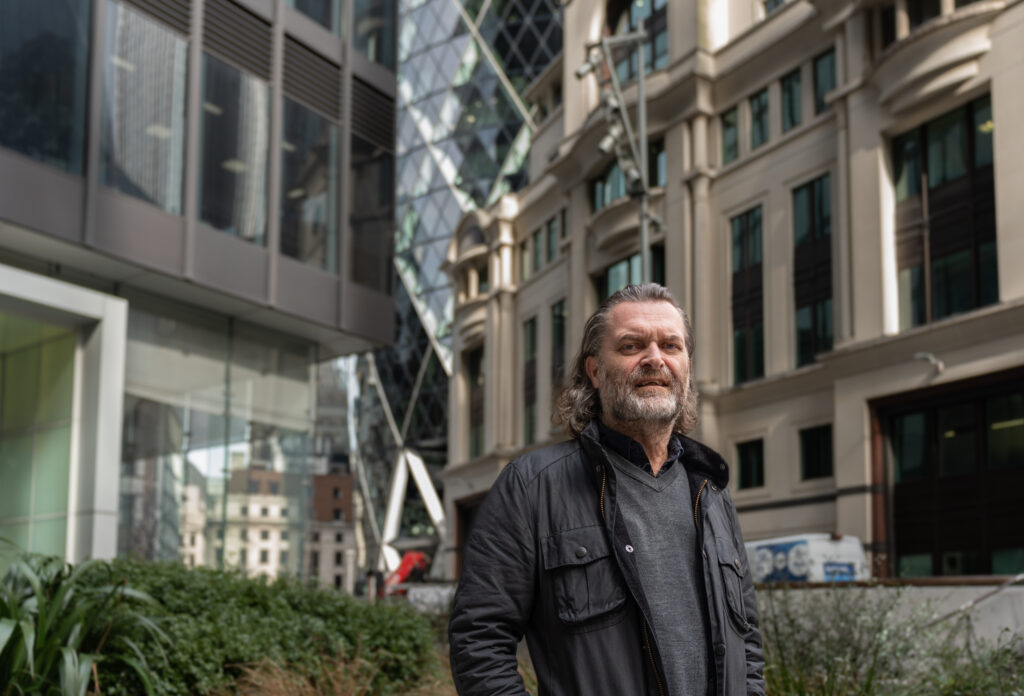Spring 2023
That passion derives from 35 years of experience as a client in the international corporate world. Over that time, he held positions as the most senior property professional at Standard Chartered Bank (SCB), American Express, and Nortel Networks.
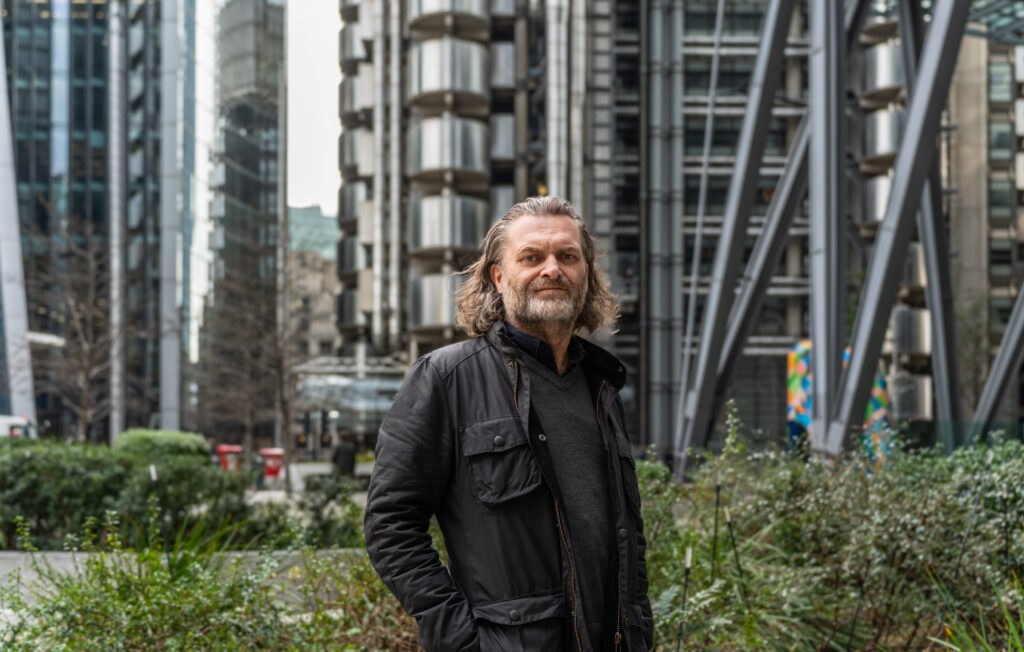
At SCB, working out of Singapore, Denis was responsible to the board for delivering a ‘twice the experience, half the space’ vision for their global property portfolio. That involved achieving major efficiencies whilst enhancing the working lives of 85,000 colleagues.
It was while at SCB that he first worked with Osborne+Co on the development of two highly successful BTS projects in Ghana and Dubai. Denis was impressed by their willingness to get around the table and have open, face-to-face conversations to produce practical solutions. That was a significant factor in his decision to join the company when he relocated to the UK in 2023.
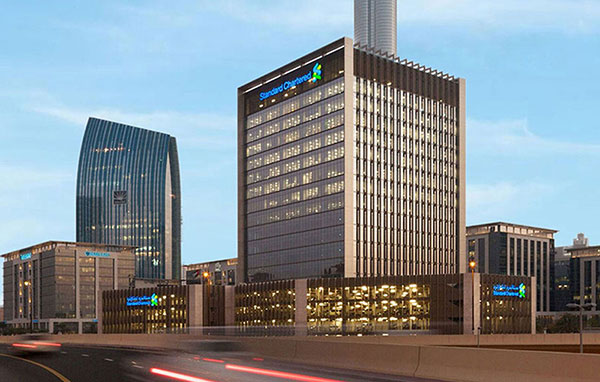
Denis’ corporate experience had convinced him of the pressing need for developers to be more proactive, visible, and engaged with their clients. He saw his crossover from the corporate side as a way to help change the dynamic.
He is committed to developing a culture in which an exchange of ideas and opinions takes place between client and developer with no hidden agenda on either side. That process takes self-interest out of the equation in favour of a mutually rewarding, vested partnership. Both sides have the incentive to drive efficiencies, reduce costs, and mitigate risks. As Denis says, that’s a win-win situation that encourages long-term relationships across multiple projects.
Denis is keen to emphasise that he is not a developer, so his client perspective brings something new to Osborne+Co. His brief is to be available and accessible to corporate/enterprise clients (people who were once his peers) drawing on his experience, his wide knowledge, his empathy, and his desire to help.
Denis sees himself as a bridge, someone who can initiate and facilitate conversations between client and developer. Sometimes that means acting as an interpreter to ensure that both sides understand each other. He would like to see a future in which more developers have the courage to knock at clients’ doors offering solutions. That’s not something he ever experienced in his corporate career where he was used to existing integrated facilities management (IFM) or asset relationships acting as effective ‘gate keepers’.
Understanding client challenges. The return to work
As Denis says, working closely with the client has never been so important, not least because of the radical changes to working practices resulting from the pandemic.
Employees who discovered home working and switched to conducting much of their work online are loath to give up that flexibility. And that’s true worldwide.
Realistically, many companies only expect 30% of their workforce back in the office. So, how do they give them a reason to return, and breathe life into buildings that are potentially more than half empty?
For Denis, there can only be one answer and that is to ‘focus on the 95% (the employees). In fact, he’s passionate about this.

It’s not simply about creating beautiful buildings. Those buildings need to promote employee well-being, offer the right amenities, and use the available technologies to sustain a new working culture.
Getting it right, however, demands agile planning and attention to how a building is experienced. Having started his working life as an interior designer, Denis understands the importance of the physical surroundings, but the new focus must go beyond that.
Companies need to look at the services they offer such as dry cleaning, gyms, childcare facilities etc. and understand the role of technology. A new generation workforce has new expectations. They run their lives online. They expect their office technology to locate the people they want to see, book rooms, arrange social events – whatever they need. And the technology must be there as soon as they hit reception. After all, and Denis quotes Tim Oldman at Leesman, the first five minutes of the internal employee journey determine the rest of their day.
Another way to ensure that a building continues to live and breathe in today’s world is to reach out to the broader community by providing public spaces and amenities such as coffee shops and restaurants. That’s a solution being adopted in the Santander HQ at Unity Place in Milton Keynes. The bank is also looking at providing co-working spaces and subleasing areas of a building originally planned over five years ago when the world worked very differently.
”The first five minutes of the internal employee journey determine the rest of their day
Tim OldmanLeesman
The challenge of changing legislation
Another imminent challenge is sustainability. Or as Denis puts it, the ‘brown-to-green challenge’.
This is largely driven by forthcoming legislation such as new EPC ratings across the UK. Very soon, most office buildings over 10 years old will no longer be fit for purpose or subletting without major refitting. That includes everything from improving insulation and energy efficiency to providing ‘end-of-trip’ facilities such as showers and cycle parking.
The investment required to achieve compliance is potentially enormous. At the same time, simply tearing them down and rebuilding, though possibly more cost-efficient, is increasingly unacceptable. It’s an area where Osborne+Co can really help. That’s why Denis wants to talk to clients now about how best to manage costs by, for example, phasing works or adopting reuse and recycle strategies when changing tenants.
A long-term vision
These challenges are huge but can be addressed and overcome if clients get involved as early as possible, having the sort of conversations that Denis wants to encourage in his role at Osborne+Co.
Denis has a vision. He understands corporate real-estate people because he was one himself and he appreciates the challenges they face and the constraints they work under. He also knows the potential value of his advice, insights, and knowledge, especially if it’s provided in a spirit of partnership rather than a narrow commercial context.
Corporate real estate people need help. Denis intends to be the one knocking on their doors to offer it.
Any further questions?
If you have any further questions about Denis or this article, please contact us.
Get in touch
